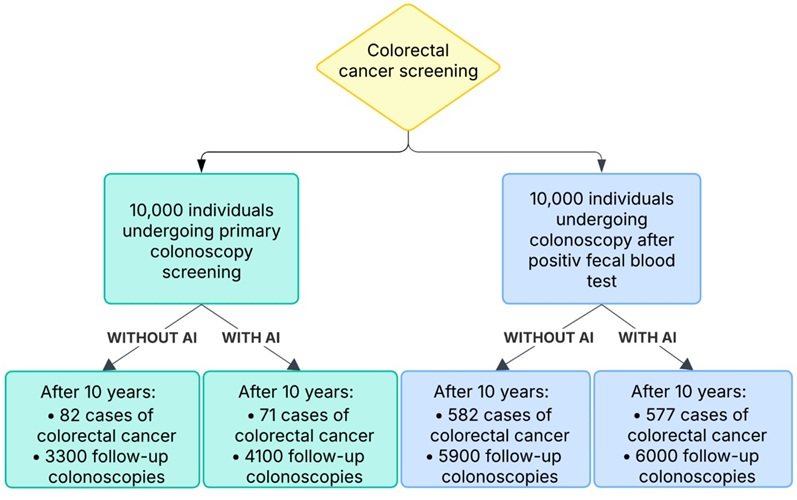Clean Hospitals Can Reduce Antibiotic Resistance, Save Lives
|
By HospiMedica International staff writers Posted on 19 Jan 2023 |

Antibiotics have the capability to save lives and make much of modern medicine possible. However, bacteria can evolve resistance that does not allow them to be killed by antibiotics and pose a threat to those medical gains, especially when they spread through patients in healthcare settings. In patients taking antibiotics, the medicines can inhibit any drug-sensitive bacteria in the body. If the patient carries bacteria resistant to antibiotics, it creates an environment where they can thrive. It is well known that good hygiene is central to infection control in both health care and the community. However, it is less clear how hygiene (or other transmission control measures) impacts the evolution of antibiotic resistance. Now, a new study indicates that antibiotic resistance can be due to poor hygiene practices followed by hospitals or other medical facilities.
For the study, researchers at the Georgia Institute of Technology (Atlanta, GA, USA) examined whether hygiene can weaken the impact of antibiotic pressure on resistance evolution. The team started by developing a mathematical model of resistance in order to predict how good or poor hygiene could affect how rapidly resistant bacteria multiplies as a result of antibiotic treatment. The team tested their model against antibiotic resistance data from the European Centre for Disease Prevention and Control.
The data collected at 691 long-term care facilities across 19 European countries in 2013 indicated that this was the case. In countries where staff at such facilities made better use of alcohol-based hand rubs, there was less enrichment of antibiotic-resistant bacteria. This suggests that hospitals and other facilities such as nursing homes that use training and procedures for their cleaning staff can prevent patients from acquiring resistant bacteria from others, thus preventing the explosive acceleration in the spread of drug-resistant diseases.
“Health care hygiene is a cornerstone of good clinical practice”, said Kristofer Wollein Waldetoft from the Center for Microbial Dynamics and Infection at Georgia Institute of Technology. “It’s also key to the management of antibiotic resistance by protecting patients from the acquisition of resistant strains. The importance of hygiene, especially hand hygiene, is well appreciated by health care professionals, but compliance has nonetheless been shown to be poor. There is thus opportunity to improve on this important, yet simple, aspect of resistance management.”
Latest Patient Care News
- Portable Biosensor Platform to Reduce Hospital-Acquired Infections
- First-Of-Its-Kind Portable Germicidal Light Technology Disinfects High-Touch Clinical Surfaces in Seconds
- Surgical Capacity Optimization Solution Helps Hospitals Boost OR Utilization

- Game-Changing Innovation in Surgical Instrument Sterilization Significantly Improves OR Throughput
- Next Gen ICU Bed to Help Address Complex Critical Care Needs
- Groundbreaking AI-Powered UV-C Disinfection Technology Redefines Infection Control Landscape
- Smart Hospital Beds Improve Accuracy of Medical Diagnosis
- New Fast Endoscope Drying System Improves Productivity and Traceability
- World’s First Automated Endoscope Cleaner Fights Antimicrobial Resistance
- Portable High-Capacity Digital Stretcher Scales Provide Precision Weighing for Patients in ER
- Portable Clinical Scale with Remote Indicator Allows for Flexible Patient Weighing Use
- Innovative and Highly Customizable Medical Carts Offer Unlimited Configuration Possibilities
- Biomolecular Wound Healing Film Adheres to Sensitive Tissue and Releases Active Ingredients
- Wearable Health Tech Could Measure Gases Released From Skin to Monitor Metabolic Diseases
- Wearable Cardioverter Defibrillator System Protects Patients at Risk of Sudden Cardiac Arrest
- World's First AI-Ready Infrasound Stethoscope Listens to Bodily Sounds Not Audible to Human Ear
Channels
Artificial Intelligence
view channel
Innovative Risk Score Predicts Heart Attack or Stroke in Kidney Transplant Candidates
Heart researchers have utilized an innovative risk assessment score to accurately predict whether patients being evaluated for kidney transplants are at risk for future major cardiac events, such as a... Read more
AI Algorithm Detects Early-Stage Metabolic-Associated Steatotic Liver Disease Using EHRs
Liver disease, which is treatable when detected early, often goes unnoticed until it reaches advanced stages. Metabolic-associated steatotic liver disease (MASLD), the most prevalent form of liver disease,... Read moreCritical Care
view channel
AI Eye Scans Could Help Identify Heart Disease and Stroke Risk
New research has explored the advantages of utilizing artificial intelligence (AI) retinal imaging for screening cardiovascular diseases in general practice (GP) clinics and highlighted areas where improvements... Read more
Digital Heart Twin Improves Diagnosis and Treatment of Cardiac Arrhythmias
Millions of individuals around the globe suffer from cardiac arrhythmias. Traditionally, electrocardiography (ECG) has been used to detect premature ventricular contractions (PVCs), one of the most common... Read more
First-Of-Its-Kind AI-Powered Probability Scoring System Assesses Heart Failure with Preserved Ejection Fraction
Heart failure with preserved ejection fraction (HFpEF) is one of the most difficult types of heart failure to diagnose due to the intricate interaction between various clinical and echocardiographic factors.... Read moreSurgical Techniques
view channel
New Transcatheter Valve Found Safe and Effective for Treating Aortic Regurgitation
Aortic regurgitation is a condition in which the aortic valve does not close properly, allowing blood to flow backward into the left ventricle. This results in decreased blood flow from the heart to the... Read more
Minimally Invasive Valve Repair Reduces Hospitalizations in Severe Tricuspid Regurgitation Patients
The tricuspid valve is one of the four heart valves, responsible for regulating blood flow from the right atrium (the heart's upper-right chamber) to the right ventricle (the lower-right chamber).... Read moreHealth IT
view channel
Printable Molecule-Selective Nanoparticles Enable Mass Production of Wearable Biosensors
The future of medicine is likely to focus on the personalization of healthcare—understanding exactly what an individual requires and delivering the appropriate combination of nutrients, metabolites, and... Read more
Smartwatches Could Detect Congestive Heart Failure
Diagnosing congestive heart failure (CHF) typically requires expensive and time-consuming imaging techniques like echocardiography, also known as cardiac ultrasound. Previously, detecting CHF by analyzing... Read morePoint of Care
view channel
Handheld, Sound-Based Diagnostic System Delivers Bedside Blood Test Results in An Hour
Patients who go to a doctor for a blood test often have to contend with a needle and syringe, followed by a long wait—sometimes hours or even days—for lab results. Scientists have been working hard to... Read more
Smartphone-Enabled, Paper-Based Quantitative Diagnostic Platform Transforms POC Testing
Point-of-care diagnostics are crucial for public health, offering rapid, on-site testing that enables prompt diagnosis and treatment. This is especially valuable in remote or underserved regions where... Read moreBusiness
view channel
Expanded Collaboration to Transform OR Technology Through AI and Automation
The expansion of an existing collaboration between three leading companies aims to develop artificial intelligence (AI)-driven solutions for smart operating rooms with sophisticated monitoring and automation.... Read more


















